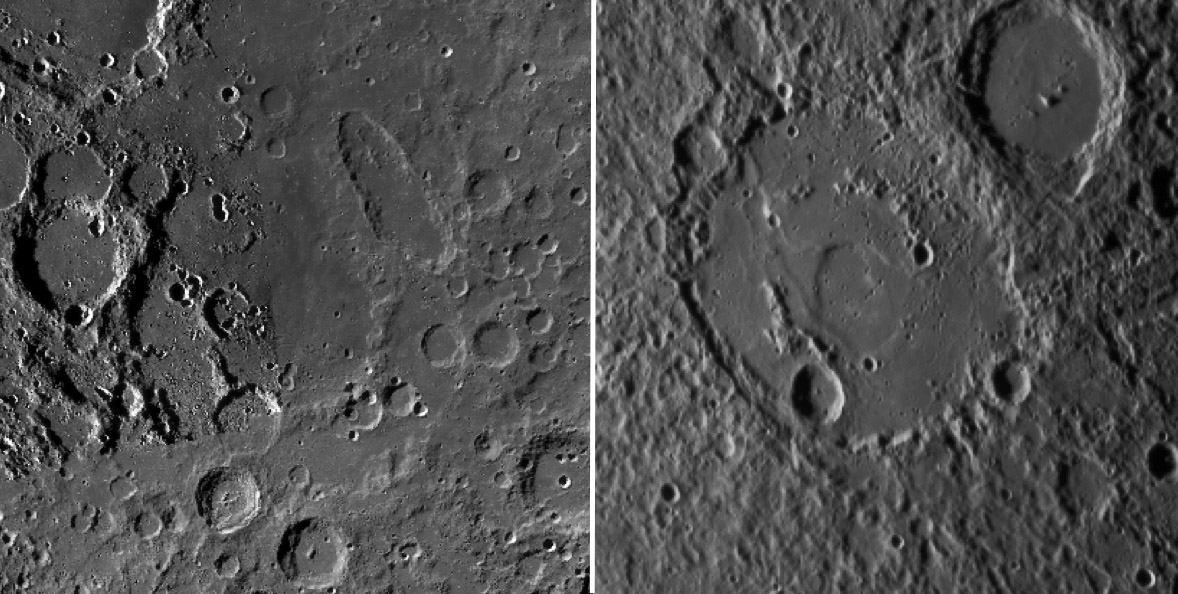Difference between revisions of "March 19, 2011"
| Line 24: | Line 24: | ||
Messenger [http://messenger.jhuapl.edu/ website]<br /> | Messenger [http://messenger.jhuapl.edu/ website]<br /> | ||
<br /> | <br /> | ||
| + | <p><b>Yesterday's LPOD:</b> [[March 18, 2011|Young And Old]] </p> | ||
| + | <p><b>Tomorrow's LPOD:</b> [[March 20, 2011|Nautical Supermoon]] </p> | ||
<hr /> | <hr /> | ||
Revision as of 11:54, 7 February 2015
Twins Separated Before Birth

left image from LROC WMS Image Map, right image from Messenger Approach image
Messenger entered orbit around Mercury on Thursday night, and now begins detailed
observation of a world similar to the Moon, with surprising differences. Mercury is full
of impact craters and has some volcanism, but there are significant differences of each
compared to our standard Moon. One thing that Jim Head and I noted 35 years ago,
and Messenger images confirm, is that peak ring basins (or two ring basins) are much
more common on Mercury than on the Moon. The nearside of the Moon has only one,
the 335 km diameter Schiller-Zucchius Basin, with its incomplete inner rim and a hint
of a third inner depression. The 196 km wide basin named Steichen on Mercury (right
image) is remarkably similar, even including an inner depression, albeit even more off-
center than the one in S-Z. In 1976 Head and I were unable to determine why peak ring
basins were so common on Mercury - impact velocity? crustal structure? - so perhaps
the Messenger data will lead to an answer.
Chuck Wood
Related Links
Rükl plate 71
Messenger website
Yesterday's LPOD: Young And Old
Tomorrow's LPOD: Nautical Supermoon



